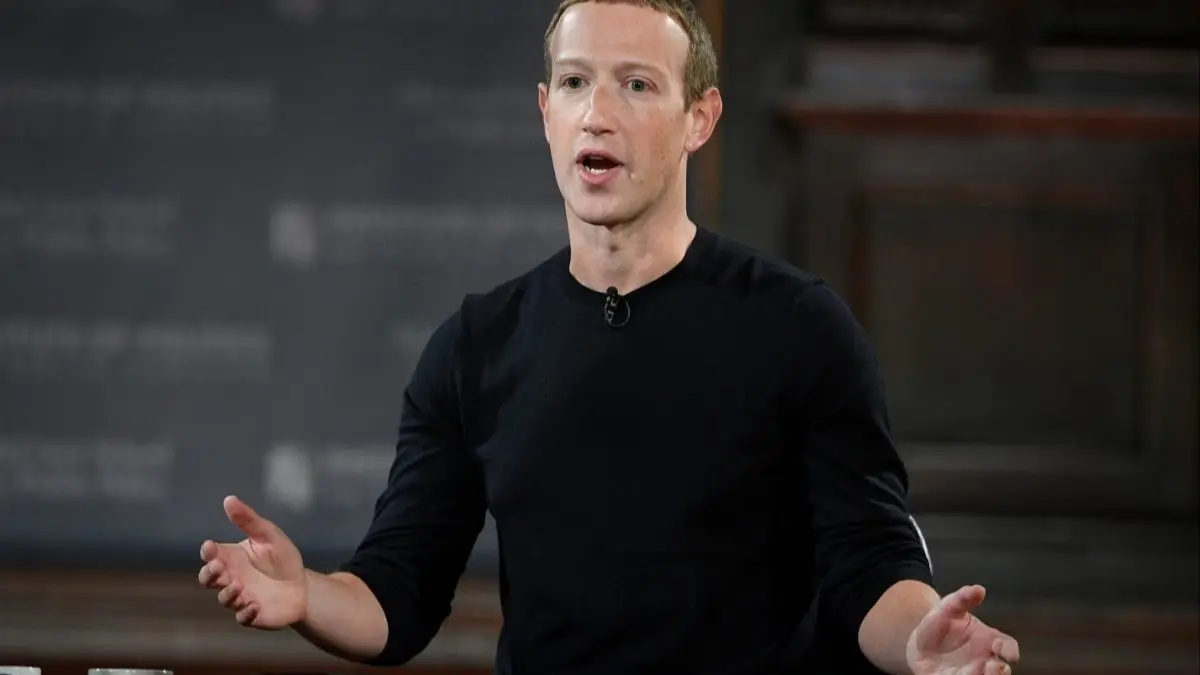Updated 14 April 2025 at 14:55 IST
Future of Instagram and WhatsApp Is at Stake: All You Need to Know About Meta Antitrust Trial
US District Judge James Boasberg will oversee the proceedings, with the trial expected to last between seven to eight weeks.
- World News
- 4 min read

Washington DC: The Federal Trade Commission’s (FTC) high-profile antitrust trial against Meta kicks off Monday in a Washington courtroom, following nearly six years of investigations and legal proceedings. The outcome of this case could significantly reshape the future of Meta’s social media empire, particularly Instagram and WhatsApp.
US District Judge James Boasberg will oversee the proceedings, with the trial expected to last between seven to eight weeks. Both parties will deliver their opening statements as they prepare to present a wide array of evidence and testimony.
The government is expected to call several major figures to the stand, including Meta CEO Mark Zuckerberg, former COO Sheryl Sandberg, and Instagram head Adam Mosseri, according to NPR. A Wall Street Journal report also indicated that Zuckerberg had lobbied former President Donald Trump to press the FTC to drop the case—a claim Meta denies.
"Buy or Bury" Strategy: What Are The FTC’s Allegations
The FTC alleges that Meta acquired Instagram in 2012 and WhatsApp in 2014 with the intent to eliminate potential competition. According to government filings, the acquisitions were part of a broader “buy or bury” strategy aimed at maintaining a monopoly in the social media space.
Advertisement
One of the most critical pieces of evidence is a 2012 internal email where Zuckerberg allegedly stated that buying Instagram would help “neutralize a potential competitor.” The FTC argues that such conduct violates federal antitrust laws and has stifled innovation and user choice.
What Does The FTC Want?
As a remedy, the FTC is pushing for Meta to divest Instagram and WhatsApp. Regulators argue that separating these services would open the door for increased competition, potentially improving privacy safeguards and user experience.
Advertisement
According to the government, Meta’s dominant position has led to reduced service quality and weakened data protection, and a breakup would foster a more competitive and dynamic market.
"We Face Fierce Competition": What Did META Say
Meta has pushed back strongly against the lawsuit. In a statement, spokesperson Christopher Sgro said the FTC’s case “defies reality,” emphasizing that Meta operates in a fiercely competitive environment.
“The evidence at trial will show what every 17-year-old in the world knows: Instagram, Facebook, and WhatsApp compete with Chinese-owned TikTok, YouTube, X, iMessage, and many others,” Sgro stated.
He further criticized the FTC’s reversal of previously approved deals, saying, “More than 10 years after the FTC reviewed and cleared our acquisitions, the Commission’s action in this case sends the message that no deal is ever truly final.”
Meta argues that its acquisitions were lawful, approved by regulators, and that revisiting them undermines trust in the regulatory process.
If the court rules in favor of the FTC, Meta could face a corporate breakup—the largest of its kind since AT&T’s monopoly was dismantled more than 40 years ago. Such a move would likely alter the structure of the digital advertising industry and the broader social media ecosystem.
While the FTC claims a breakup would create a more competitive market, Meta contends it would harm users by disrupting services that have become closely integrated over the years.
Zuckerberg, Trump, and the Politics Behind the Case
The case also carries political dimensions. Originally filed in 2020 during Donald Trump’s administration, it gained further momentum under President Joe Biden and is now proceeding under FTC Chairman Andrew Ferguson. Reports suggest Zuckerberg had visited Trump’s Mar-a-Lago estate to lobby for support, and some speculate the former president might consider a settlement if re-elected.
However, Ferguson has indicated that the agency is fully prepared, saying his team is “raring to go.” He did acknowledge he would “obey lawful orders” from the president, leaving a narrow possibility for a political resolution.
As the trial unfolds over the coming weeks, the future of Instagram, WhatsApp, and possibly the structure of Meta itself hangs in the balance. With billions in revenue and billions of users at stake, this case could reshape the digital world.
Published By : Tanisha Rajput
Published On: 14 April 2025 at 14:55 IST
